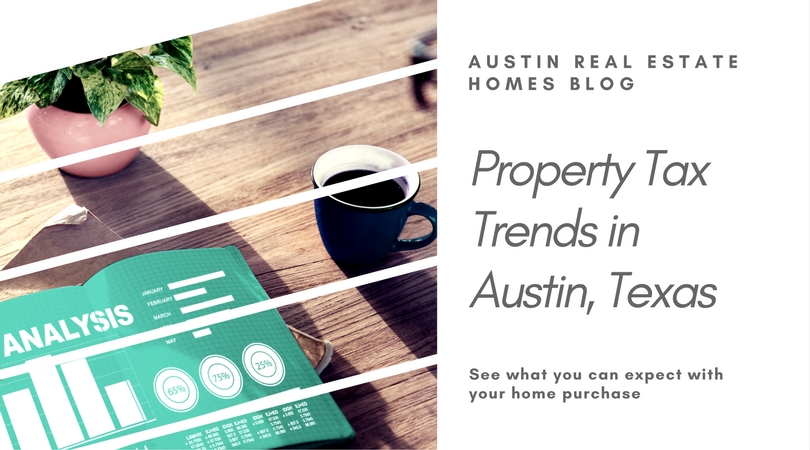We’ve written extensively on property tax rates in Austin and with good reason. Texas, as you may know, has no personal income tax. This makes property taxes and sales taxes the primary means of rising revenue and a unique income/expense situation for many relocating buyers. While it may be intimidating at first, being informed about the Austin property tax trends can help you better understand your home investment.

Way back in September, 2012, we wrote in an article entitled Property Taxes Up, Home Values Down which noted that
“for the second consecutive year, local taxing agencies are imposing tax rate increases… the tax authorities claim they must raise the tax rate to bring in the same amount of revenue as collected last year…(yet) the average value of homes dropped.”
Since then, property taxes are up even more and so are home values. In Travis County, the Central Appraisal District reports for 2017 the average taxable value for a home has increased about 8% to almost $308,000. (The taxable value is the market value of a home less certain exemptions, if eligible.) Last year in 2016,Travis County homes increased on average 8.7%.
According to WalletHub, in terms of effective real estate tax rate Texas ranks #46 (1.9%) in the country. 25 states have an effective real estate tax rate of less than 1.0%.
Why are Property Taxes So High?
As the Austin metropolitan area’s population & economy continue to grow, the need for additional and better services becomes increasingly critical. Just drive down 35 at rush hour and it’s apparent the need for additional roads to accommodate the growing population. Without a state income tax, the money must come from somewhere.
Texas homeowners are supposed to be protected by an 8% cap on annual increases in property taxes; however, the cursory value increases have turned into de facto tax increases.
Will These Trends Continue?
All of that said, help may be on the way. Rep. Dennis Bonnen, R-Angleton has authored House Bill 15, entitled the “Property Taxpayer Empowerment Act” which would reduce the maximum increase in taxes for a residential property — from 8 percent to 4 percent. The legislation would also require local governments to annually publish a “No New Taxes Rate” — which is the rate that would raise the same amount of money as the previous year — and restrict debt service taxes to the debt-level that has been approved by voters.
How to Make It Work for You:
Before buying a home in Austin, make sure you fully understand all the payments this commits you to – including taxes. High property tax areas generally have superior schools, greater conveniences and services, but you’ll pay for them. Only buy as much value as you can comfortably and confidently afford.
Looking to Buy A Home In Austin?
We can help! We’re on top of all the latest trends in property taxes and home prices in Austin and the surrounding areas and can help you make the most of your investment. Call us at (512) 827-8323 or email us at info@11OaksRealty.com to schedule a no obligation consultation.
Leave a Reply